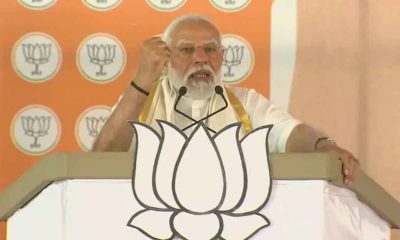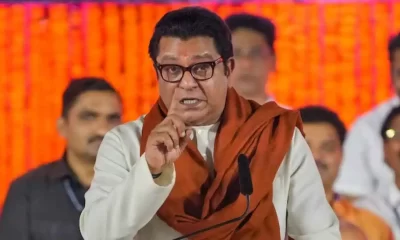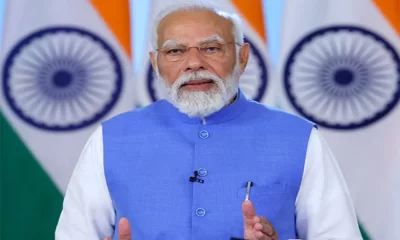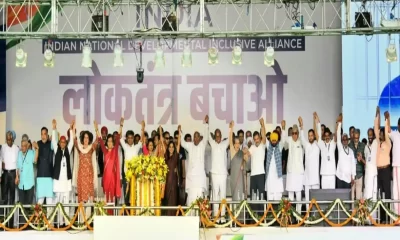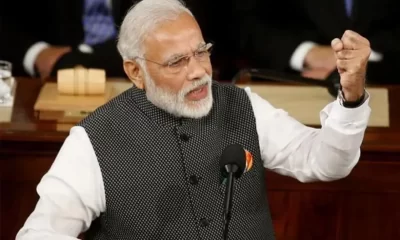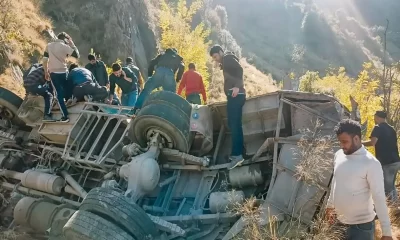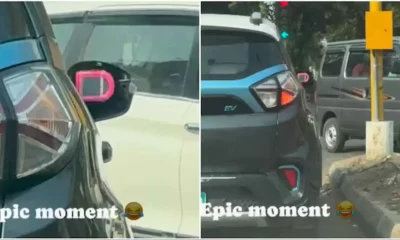Latest world news
Prime Minister Narendra Modi’s 17 minutes speech at UNGA – Full Text
Prime Minister Narendra Modi on Friday Evening, September 28, addressed the 74th session of the United Nations General Assembly (UNGA) in New York.
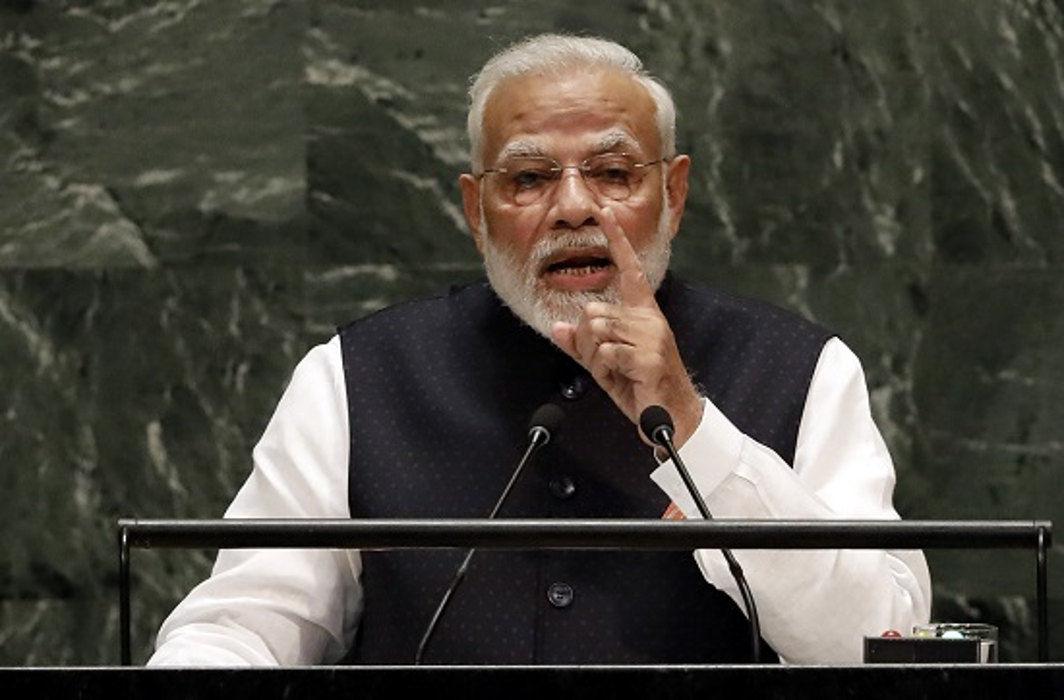
[vc_row][vc_column][vc_column_text]Prime Minister Narendra Modi on Friday Evening, September 28, addressed the 74th session of the United Nations General Assembly (UNGA) in New York.
Your Excellency, Mr/Madame President,
It is a great honour for me to address the 74th Session of the United Nations on behalf of 1.3 billion Indians.
It is a very special occasion, also, because this year, the entire world is celebrating the 150th birth anniversary of Mahatma Gandhi.
His message of truth and non-violence is very relevant for us even today, for peace, development and progress in the world.
Mr President,
This year, the world’s biggest election took place. In the world’s biggest democracy , the highest ever number of voters voted my government into power for a second term with an even stronger mandate than before.
And it is thanks to this mandate that I am standing here before you once again.
However, the message that this mandate conveys has an even greater significance, a wider and more inspiring one.
Mr President,
When a developing country is able to successfully implement the world’s biggest sanitation campaign within the Clean India Mission, building over 110 million toilets in just 5 years for its countrymen, all its achievements and outcomes are an inspirational message for the entire world.
When a developing country, successfully runs the world’s biggest health assurance scheme, giving 500 million people the facility of an annual health cover of 500,000 Rs for free treatment, the achievements and responsive systems that result from this scheme show the world a new path.
When a developing country, successfully runs the world’s biggest financial inclusion scheme, opening over 370 million bank accounts for the poor in just 5 years, the systems that result, build confidence in the poor across the entire world.
Mr President,
As I came in here, on a wall at the entrance to this building, I noticed the call to make the United nations free of single-use plastic.
I am pleased to inform this august assembly that even as I am addressing you today, a very large campaign is being started across the entire country to make India free of single-use plastic.
In the next five years, apart from promoting water conservation, we are going to ensure water supply to 150 million homes.
In the next five years, we are going to build over 125,000 kilometers of new roads.
By the year 2022, when India celebrates its 75th Independence Day, we plan to build 20 million houses for the poor.
Though the world may have set itself the target of eradicating TB by 2030, in India we are working towards eradicating it by 2025.
The question that arises is just how have we been able to achieve all of this. How is it that such rapid changes are taking place in India?
India is a great culture that is thousands of years old, a culture that has its own vibrant traditions, and which has encompassed universal dreams. Our values and culture see divinity in every being and strive for the welfare of all.
Therefore, the very core of our approach is public welfare through public participation and this public welfare is not just for India but for the entire world.
And that is the reason we draw inspiration from our motto: Collective efforts, for growth of all, with everyone’s trust.
And this too, is not confined within the borders of India.
Our endeavours are neither an expression of pity, nor a pretense. They are inspired by a sense of duty, and duty alone.
All our endeavours, are centered on 1.3 billion Indians. But the dreams that these efforts are trying to fulfill, are the same dreams that the entire world has, that every country has, and that every society has.
The efforts are ours, but their fruits are for all, for the entire world.
And this conviction of mine gets stronger every day, when I think of those countries, who, just like India, are striving for development, each in their own way.
When I hear about their joys and sorrows, when I get to know about their dreams, my resolve to develop my country at a faster pace gets even stronger, so that India’s experience can be beneficial to these countries.
Mr. President,
3000 years ago, a great poet of India, Kariyan Pungun-dra-naar, wrote in Tamil the most ancient language of the world:
“Ya-dum, Oo-ray, Yaav-rum Ke-rir” which means We belong to all places, and to everyone.
This sense of belonging beyond borders is unique to India.
In the last 5 years, India has worked towards strengthening its centuries-old great tradition of fraternity among nations and welfare of the world, which is indeed, in line with the key objectives of the United Nations.
The issues that India raises, the kind of new global platforms that India has come forward to build, seek collective efforts to address serious global challenges and issues.
Mr. President,
If you look at it from a historic and per capita emission perspective, India’s contribution to Global Warming is very low.
However, India is one of the leading nations when it comes to taking steps to address this issue.
On one hand, we are working towards achieving the target of 450 GigaWatts of renewable energy, and on the other hand, we have also taken the initiative to create the International Solar Alliance.
One of the effects of Global Warming is the increasing number and severity of natural disasters, and at the same time they are appearing in new areas and in new forms.
In view of this, India has initiated the formation of the “Coalition for Disaster Resilient Infrastructure” CDRI. This coalition will help build infrastructure which can withstand natural disasters.
Mr. President,
The largest number of supreme sacrifices made by soldiers of any country for UN Peacekeeping missions is from India.
We belong to a country that has given the world, not war, but Buddha’s message of peace.
And that is the reason why, our voice against terrorism, to alert the world about this evil, rings with seriousness and the outrage.
We believe that this is one of the biggest challenges, not for any single country, but for the entire world and humanity.
The lack of unanimity amongst us on the issue of terrorism dents those very principles that are the basis for the creation of the U.N.
And that is why, for the sake of humanity, I firmly believe, that it is absolutely imperative, that the world unites against terrorism, and that the world stands as one against terrorism.
Mr. President
The face of the world is changing today.
Modern technology in the 21st Century is bringing about sweeping changes in social life, personal life, economy, security, connectivity and international relations.
In such a situation, a fragmented world is in the interest of no one.
Neither do we have the option to confine ourselves within our boundaries.
In this new era, we will have to give new direction to Multilateralism, and to the United Nations.
Mr. President,
One Hundred and Twenty Five years ago, the Great Spiritual Guru, Swami Vivekananda, gave this message to the world during the World Parliament of Religions in Chicago.
The message was, “Harmony and Peace. And not Dissension”.
Today, the message from the world’s largest democracy, for the International community is still the same: “Harmony and Peace”.
Thank you Very much.[/vc_column_text][/vc_column][/vc_row]
Latest world news
World Earth Day 2024: Google Doodle showcases aerial view of planet’s natural beauty
Google celebrated Earth Day 2024 with a special doodle featuring an aerial view of our planet’s biodiversity.
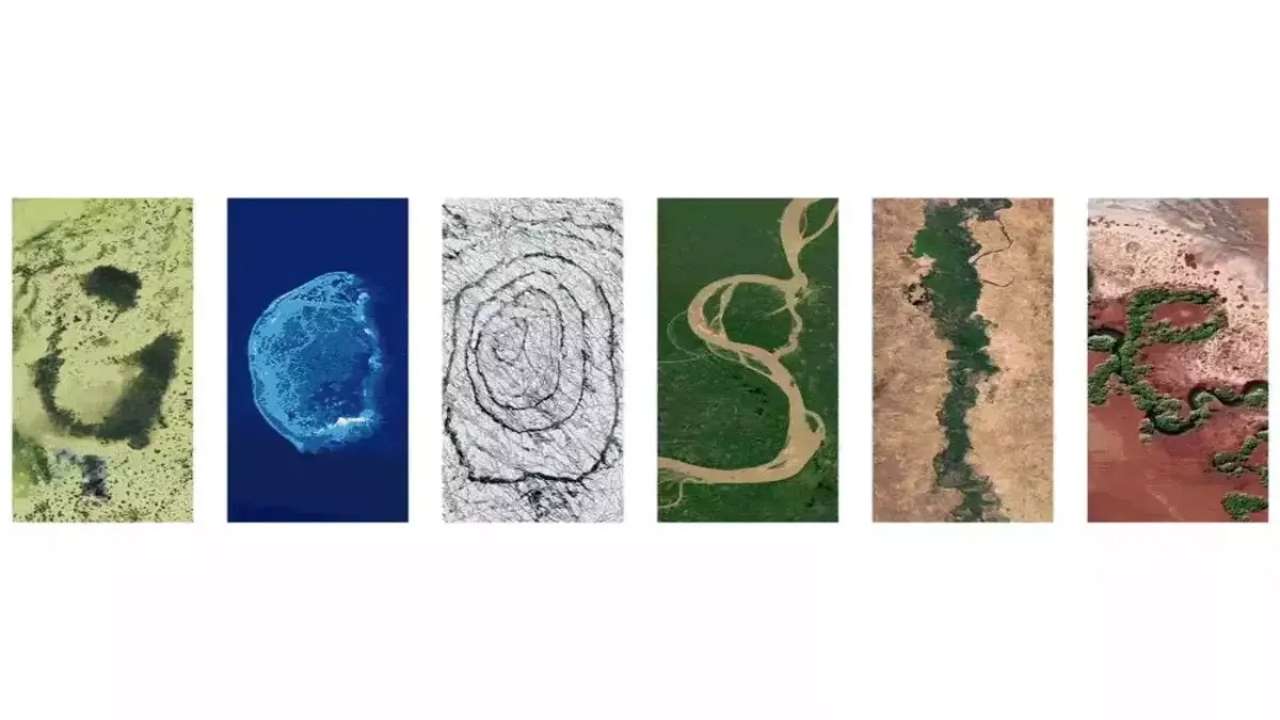
Google shared a doodle today to celebrate World Earth Day 2024, which showcased aerial photos of the planet’s biodiversity and natural beauty. Google reminded us of the importance of protecting planet earth for future generations with the help of this doodle.
The Google letters depict specific locations across the globe where people, communities, and governments work every day to help protect the planet’s natural beauty, biodiversity, and resources, according to the explanation of the annual Earth Day 2024 doodle on their website.
It said, these examples remind us that there’s much more to do to address the climate crisis and biodiversity loss, but also offer the promise of hope and optimism.
The islands of Turks and Caicos are represented by the letter “G.” The islands’ conservation efforts are concentrated on protecting important regions for biodiversity and addressing persistent environmental problems.
The largest reef in the southern Gulf of Mexico and a UNESCO biosphere reserve, Scorpion Reef National Park, is represented by the letter “O” in the Mexican flag.
The letter “O” features Iceland’s Vatnajokull National Park, which was designated as a national park in 2008 following decades of advocacy. The ecology within and surrounding the biggest glacier in Europe is safeguarded by this UNESCO World Heritage Site.
The letter “G” has the Jau National Park in Brazil on it. It is a UNESCO World Heritage Site and one of the biggest forest reserves in South America.
The Great Green Wall of Nigeria is represented by the letter “L,” and the Pilbara Islands Nature Reserves of Australia are represented by the letter “E.”
Meanwhile, Earth Day is a worldwide event that promotes protection of the environment every year. April 22 serves as a reminder of the importance of conservation efforts and sustainable practices to guarantee a healthier world and a brighter future.
The occasion inspires people across the world to come together and take action to protect the environment, strengthening our bonds with nature and promoting good change.
Latest world news
Bigg Boss 14 contestant Rahul Vaidya struggles walking in knee deep water, compares Dubai rains with Mumbai floods
Singer and TV personality Rahul Vaidya was recently stranded in the Dubai rains.

Rahul Vaidya, who was in Dubai ahead of his show which was scheduled to take place today, left the country due to heavy rains and reached Kolkata. The artist shared on social media his encounters in the UAE city, including challenges like walking through knee-deep water. Rahul provided an update regarding the heavy rainfall in Dubai on his Instagram profile.
The Bigg Boss 14 contestant revealed that he was in Kolkata and prepared to do an evening performance. Recalling the terrifying period he went through, Vaidya said there was a lot of confusion and panic in Dubai. The situation was similar to that when heavy floods hit Mumbai in 2005.
Vaiday also posted seval other images and videos of cars that were underwater and flooded roadways. The Bigg Boss 14 contestant, who shared his ordeal, claimed that even though it had just rained for two hours, the situation was dire.
In one of the video, which went viral he can be seen struggling in walking in knee-deep water. He can be also seen holding his sneakers in one hand and with other hand he was seen managing other things.
This is the result of the two hours of rain that it had, he can be heard saying in the video. Vidya also said he dosen’t believe Dubai is accustomed to a lot of rain. Everything had stopped working, he remarked.
After taking part in the first season of the singing reality show Indian Idol, Rahul Vaidya gained widespread recognition. In addition to Bigg Boss, he took part in Khatron Ke Khiladi 11.
Meanwhile, heavy rains that triggered flooding in the UAE and Bahrain, which left 18 people dead in Oman on Sunday and Monday, have paralyzed the financial hub of the Middle East, Dubai.
A lot of incoming flights were diverted from Dubai’s international airport because of the rain. At 7:26 p.m., the busiest airport in the world for foreign visitors stopped accepting new arrivals; a gradual resumption was announced for more than two hours later.
Images of planes navigating flooded tarmacs are making the rounds on social media.
According to pictures shared on social media, the flagship malls Dubai Mall and Mall of the Emirates both experienced heavy floods, while at least one Dubai Metro station had water up to the ankles.
There were several road collapses, severe flooding in residential areas, and numerous reports of leaks from windows, doors, and roofs.
Due to the unfavourable weather, schools around the United Arab Emirates were forced to close, and as more storms are predicted, the closures are anticipated to last until Wednesday. The government of Dubai allowed its staff to work remotely till this Wednesday.
Latest world news
Dubai sky turns green during storm in UAE, video goes viral
The UAE witnessed record-breaking rainfall on Tuesday and the National Centre of Meteorology recorded 254 mm of rainfall in less than 24 hrs in the Khatm Al Shakla area in Al Ain.

1 person was killed in UAE as it witnessed heavy rainfall on Tuesday, stranding commuters, flooding roads, disrupting trains and flights and resulting in water leakage from mall ceilings. The UAE witnessed record-breaking rainfall on Tuesday and the National Centre of Meteorology recorded 254 mm of rainfall in less than 24 hrs in the Khatm Al Shakla area in Al Ain. It is being said that the rainfall was the highest documented since the start of data collection in 1949.
The heavy rainfall in UAE came days after a similar situation in neighbouring Oman, where 13 people were killed in flash floods. Many parts of Oman saw torrential rains, which caused students to be trapped in buses and swept away motorists and trapped people in their homes.
Videos from Dubai circulating on social media showed widespread waterlogging on roads in Abu Dhabi, Dubai and other important cities. This left daily commuters in cars and other vehicles struggling to get back home. Dubai metro station too was seen flooded and closed.
One such video circulating on social media shows the aerial view of the city of Dubai from the top of a building. In the video the stormy winds are seen blowing over the city of Dubai. As the storm intensifies the Dubai sky turns green and ultimately gets covered by heavy rainfall. The video has gone viral on social media with more than 1.1 million views.
Another video showed water leakage from the ceilings of shopping malls, flooding the floors and destroying goods. A video which was shot in the famous Mall of the Emirates, showed pieces of ceiling falling as the rainwater gushed inside. Videos from many outlets of the Deira City Centre mall chain showed escalators being rendered unusable. Majid Al Futtaim, the company which owns the Mall of Emirates, said that the shopping complexes have been kept open and the customers are being sent away from the flooded areas.
-
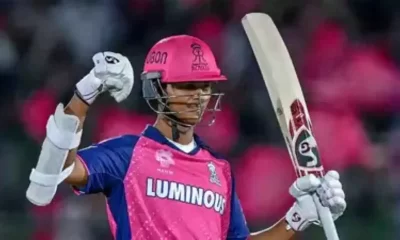
 Cricket news17 hours ago
Cricket news17 hours agoIPL 2024: Yashasvi Jaiswal hits brilliant century to help Rajasthan Royals beat Mumbai Indians by 9 wickets
-
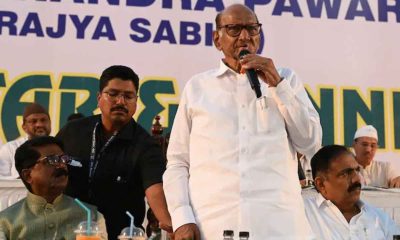
 2024 Lok Sabha Elections16 hours ago
2024 Lok Sabha Elections16 hours agoNCP (SP) leader Sharad Pawar says Prime Minister Narendra Modi is trying to create fear like Russian President Vladimir Putin
-
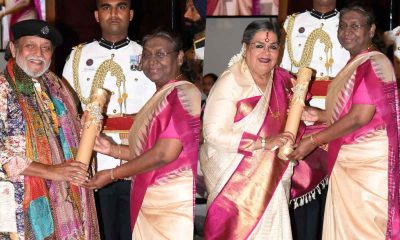
 Entertainment15 hours ago
Entertainment15 hours agoMithun Chakraborty, Usha Uthup honoured with Padma Bhushan
-

 Entertainment13 hours ago
Entertainment13 hours agoFan jumps on stage and hugs Atif Aslam during concert, video goes viral
-
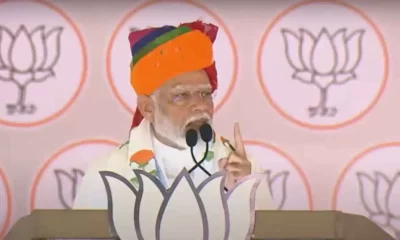
 2024 Lok Sabha Elections15 hours ago
2024 Lok Sabha Elections15 hours agoPrime Minister Narendra Modi says listening to Hanuman Chalisa under Congress rule is a crime
-

 Entertainment11 hours ago
Entertainment11 hours agoManisha Koirala reveals reason for rejecting Dil To Pagal Hai, says regrets that decision
-
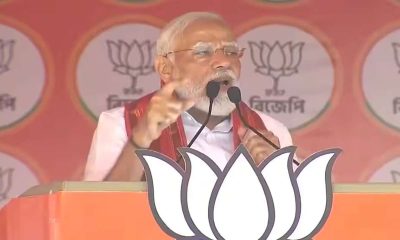
 2024 Lok Sabha Elections9 hours ago
2024 Lok Sabha Elections9 hours agoPM Modi says Congress leaders consider themselves above Lord Ram
-
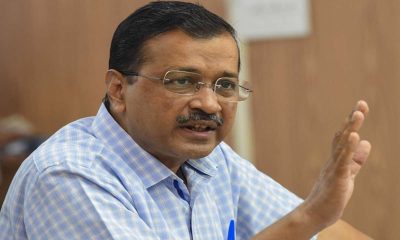
 India News17 hours ago
India News17 hours agoArvind Kejriwal given insulin in Tihar jail after sugar levels touch 320

